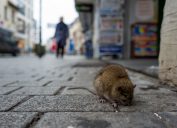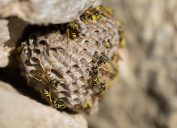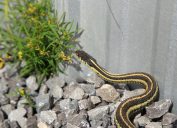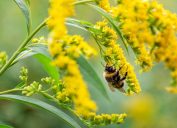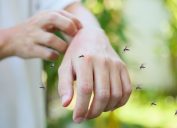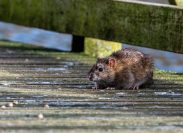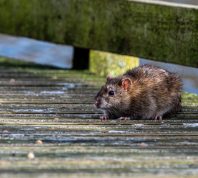6 Bugs You Should Never Kill, Pest Experts Warn
Pest experts advise against killing certain bugs due to their role in the ecosystem.

Of course, no one wants their home to become a hot spot for pests. But before you pick up that bug-killing spray, you might want to rethink your motives. "In general, it's always important to first identify the specific bug you're dealing with and understand its ecological role before deciding what actions you'll take," explains Mihail Velev, rodent and insect pest control expert at Fantastic Services. Some insects play a vital role in the ecosystem and can even help keep your home free of more harmful pests. Keep reading to hear more from Velev and other experts about the bugs you should never kill.
RELATED: 4 Soaps and Scents That Repel Mosquitoes, Experts Say.
1
Stink bugs
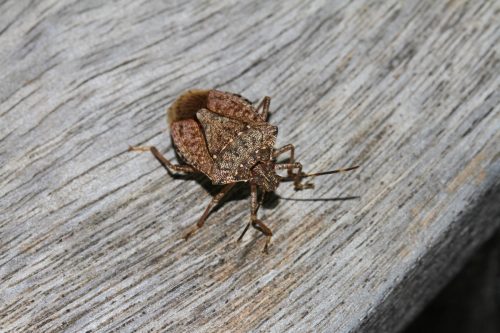
Stink bugs are light brown, oval- or shield-shaped insects that reach up to about 2 centimeters in length, with three legs on each side.
Velev notes that stink bugs are a common indoor nuisance, specifically in autumn when they enter homes in search of a warm place to hide. However, you shouldn't step on a stink bug because—in living up to their name—they can stink up your home.
"Avoid squishing stink bugs at all costs, as they tend to release a very pungent odor," says Zachary Smith, president of Smith's Pest Management. Even just making them feel threatened can lead these bugs to release a stinky scent.
"It's highly recommended to focus on simply excluding them from your house because it's actually good to have these bugs outdoors where they can help protect crops from destructive pests as their natural predators," explains Velev.
2
Centipedes
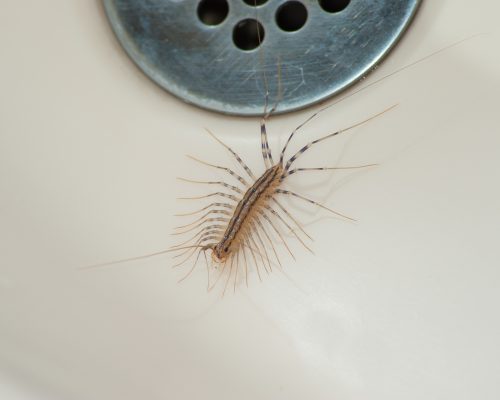
Centipedes certainly deliver on the creepy factor. However, these multi-legged insects do your home more favors than you'd think.
"Homeowners shouldn't get rid of centipedes around their home because they kill other pests," Richard Estrada, owner of ATCO Pest Control, says. "House centipedes prey on other insects like spiders, roaches, and moths that may be harmful to you or your loved ones, or at least more of an invasive pest than centipedes are."
Centipedes won't destroy the structure of your house, and they also don't pose any threats to your health. "They don't carry any harmful diseases and don't eat away at the wood in your home, so it's really not an issue to let them hang around your home or garden," Estrada says.
The multi-legged crawlers also happen to be exceptionally tidy. "Centipedes are a pest that doesn't create any type of nest or web around your home," says Donnie Shelton, owner of Triangle Pest Control and Triangle Lawn Care. "This means that while they're helping to eliminate other pests that do, they also won't be leaving behind a mess for you to clean up in their wake."
RELATED: These Smells Could Mean You Have Bed Bugs, Pest Experts Say.
3
Lady bugs
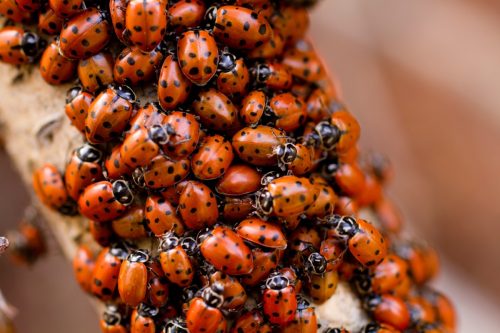
Pest experts agree that killing ladybugs is a big mistake, as these spotted little beetles can be a huge help to your garden.
"They feast on harmful pests like aphids, mites, and scale insects, making them natural pest controllers," explains Lorne Hanewich, corporate trainer at Clark's Termite & Pest Control. "Killing ladybugs can disrupt the delicate balance of your garden's ecosystem, leading to an increase in harmful insects."
Hanewich actually recommends planting nectar-rich flowers like Marigolds in your garden to attract ladybugs. Velev echoes this sentiment and suggests doing so in parts of the garden where other pests, including fruit flies and thrips, are more common.
"For ladybugs, keeping your windows and doors closed or properly screened, along with sealing up cracks and crevices around your home should keep them outside and not in your living space," advises Jim Buick, associate certified entomologist at Fox Pest Control.
4
Honey bees
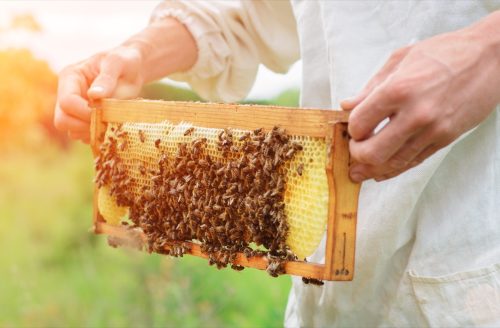
Unsurprisingly, honey bees make it onto the do-not-kill list because their benefits far outweigh any possible harm. "Honey bees pollinate flowers and crops and are the only insect that makes food eaten by humans," says Buick.
In addition to giving us honey, honeybees also help the growth of other foods we eat, especially fruits and vegetables, through pollination.
Because of this, Velev says it's highly advised to protect them and support their populations rather than try to kill them off. "If you find a bee in your living space, try to gently guide it outside rather than harming it," he suggests.
Craig Sansig, service director at Viking Pest Control, adds that honeybees aren't aggressive and should be left alone whenever possible. "If honeybees do present a risk due to the location of their nest, a beekeeper specializing in extractions should be called," he notes.
Calling in a beekeeper can also help ensure the proper removal of the potential hundreds of pounds of honey stored by the bees. "Left in the wall, it is possible to get a number of secondary pest infestations if the honey is not removed," explains Sansig. You'll likely see an influx of ants or beetles if that's the case.
RELATED: Top 10 Things Attracting Spiders to Your House.
5
Praying mantises
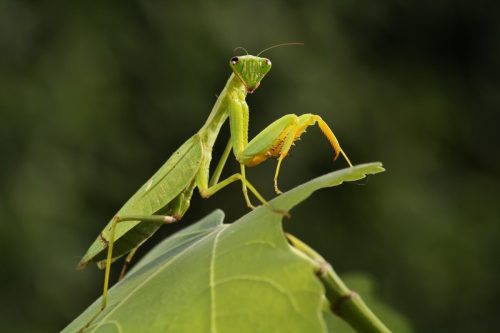
The praying mantis population is already dwindling, so if you see one, let it go peacefully. It's not likely you'll find a ton of them in your home anyway, as Buick points out that they rarely, if ever, enter a structure, and it's completely accidental if they do.
These rare critters are also harmless to humans, however, other bugs may not want to get too close. "Praying mantises are formidable hunters, preying on insects like moths, flies, and mosquitoes. They play a crucial role in controlling the population of other insects, acting as a natural form of pest control," explains Hanewich.
"Some gardeners actually purchase praying mantises to introduce in their gardens as these bugs have a huge appetite and can consume a lot of plant-damaging insects," adds Velev.
6
Spiders
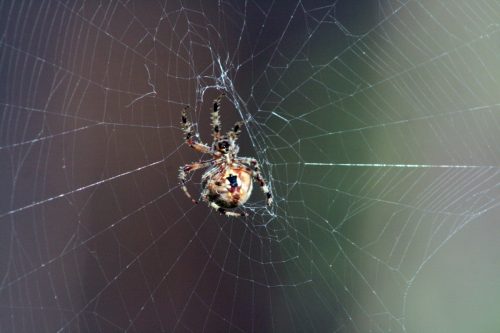
Sansig notes that fear and phobia play a strong role in how we perceive a particular species: "Very few species of spider pose an actual envenomation risk to people in North America… and their benefits in the ecosystem far outweigh the risks they present."
Spiders are considered predatory, but only when it comes to controlling other pests. "They prey on a wide range of insects, including mosquitoes and flies, reducing the overall pest population around your home," says Hanewich.
To keep spiders out of your home, Hanewich suggests sealing cracks around windows and doors and regularly cleaning areas where webs may accumulate (but do so with care to avoid harming the spider).
For more pest advice sent straight to your inbox, sign up for our daily newsletter.

